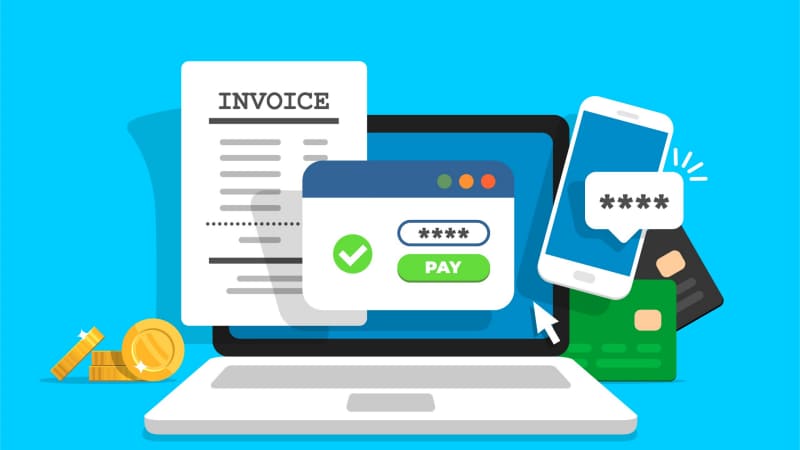How to get a loan with no credit or bad credit

Having a good credit score can improve your chances of getting approvals for things like credit cards and loans. It shows potential lenders and creditors that you can be a responsible borrower. Your credit score should be something that you monitor and keep track of regularly.
While having a higher credit score can be helpful to being able to get approvals, there are many people with poor credit. This can be due to any number of things including missed payments, delinquencies, and bankruptcies. So, is it possible to get a lean with a low credit score? Below we will discuss:
- Types of loans you can get with a bad credit score
- How to get a loan with no credit
Loans for people with bad credit scores
Before applying for a loan, keep in mind the reasons why you need a loan and how this could further impact your credit score. There are several kinds of loans that you may be able to obtain even with a bad credit score. Let’s explore some of these loans below.
Secured loans
A secured loan is one that involves some sort of collateral—something valuable that you own— such as a car or a home. This loan is more secure for the lender because it is backed by assets. Should you be unable to make the necessary payments on the loan, your assets could be collected to help repay the debt, leading to foreclosure or collections.
To apply for a secured loan, you will need the following:
- Collateral—such as an automobile, home, savings account or something with financial value.
- Government ID—to confirm your identity, you may be asked to provide a few forms of ID, such as your driver's license, passport, Social Security card or birth certificate.
- Proof of income—this could include pay stubs, bank statements or tax returns.
- Proof of address—you may be asked to provide a document including your name and address, like a utility bill, to confirm where you live.
If you have bad credit, a secured loan could be an option for you because it helps lower the risk for the lender. Please note that Chase does not offer secured loans.
Auto loans
If you’re buying a car with a bad credit score, you may want to consider a few tips. In addition to having a co-signer, you could put down a larger down payment. Doing so could help to lower your borrowing requirement. This can increase your chances of approval as it signals a lower risk to the lender. It may also reduce your overall interest payments. Saving up for a down payment before shopping for cars could be then a helpful approach to auto loans.
Joint loans
A joint loan (or joint borrowing) involves taking out a loan with another person who is willing to support you with your loan payments. This person is called a co-borrower. A co-borrower is responsible for repaying the loan. A co-borrower also shares the funds or assets—like a home—whereas a co-signer does not. They hold more responsibility and will have their name appear on your asset’s title (or lease).
Joint loans can be a good idea if you have a friend, family member or loved one—someone you trust and are willing to share assets with. Having a co-borrower could help improve your chances of getting a loan, especially if you have a poor credit score.
Home equity loans
Getting a home loan with bad credit can be difficult, but there are some options available, including home equity loans. A home equity loan is considered a second mortgage loan because it involves claiming your home as collateral. It also considers a large percentage of the home’s value for the loan. As of March 2025, according to the Federal Trade CommissionOpens overlay, you may be able to get up to 80% of your home’s value toward your loan.
Home equity line of credit (HELOC)
A home equity line of credit (HELOC) is different from a home equity loan in that it allows you to access funds as you would like them. It acts as a line of credit that you can take out funds against, but you won’t accrue interest on the funds you do not use. You can access the funds in a few ways, such as through a wire transfer, a check or credit card associated with your account. This could be a flexible option for you if you manage your finances carefully.
There are a few phases to a HELOC:
- Draw period—the timeframe where you can borrow against your equity for things like home improvements or paying off debt. This period can last up to 10 years.
- End-of-draw—occurs when your draw period ends, and you no longer have access to funds.
- Repayment period—the duration that you pay back the principal and interest balance of the HELOC. This can last up to 20 years.
- Refinancing—if you choose to refinance your home, you may be able to pay off your home sooner or lower your monthly payments. Having less money to put down each month could help you to boost your score if you make them in a timely manner.
How to get a loan with no credit
There could be a few reasons why you don’t have a credit history, such as never having a credit card or not using a credit card in recent years. If you’re looking to get a loan but do not have credit, there may be some ways you can increase your odds of getting approvals. Here are some tips:
Compare options from different lenders
Some lenders will allow you to get a loan even if you don’t have a credit history, because there are other factors considered for approval too. Be sure to compare their terms, conditions and interest rates, as you could face some higher fees as a new credit card holder.
You could also become a member of a credit union and apply for a payday alternative loan. They generally have high interest rates. These are small loans that typically don’t require you to have good credit or a credit history; however, you could be asked to provide additional information, such as proof of income.
Consider a co-signer
To help increase your chances of getting an approval, you may want to think about having someone co-sign the loan. This involves having someone you trust assist with payments should you run into any financial trouble. A co-signer takes responsibility for paying the loan in the event that you cannot. This could be a great option if you are still working toward building your credit.
Prepare for and complete the loan application
Generally, if you carry a credit history, a lender can see if you can make timely payments in your credit report. Without this information, you may need to supply other evidence that you will be able to pay back the loan. This includes employment history, previous pay stubs and other documents that your specific lender is asking for.
Make sure you have all this information ready to complete your application. Depending on what you’re applying for, you may be asked to provide additional information.
In conclusion
Whether you have no credit history or a bad credit score, there are some ways you can still get a loan. However, not all lenders will approve you for certain loans and you may face higher interest rates. That’s why improving your credit score is essential. By increasing your financial savviness and making more proactive decisions about your credit, you can get access to more opportunities for loans and approvals. To further empower yourself with financial knowledge and insights, enroll in Chase Credit Journey.



